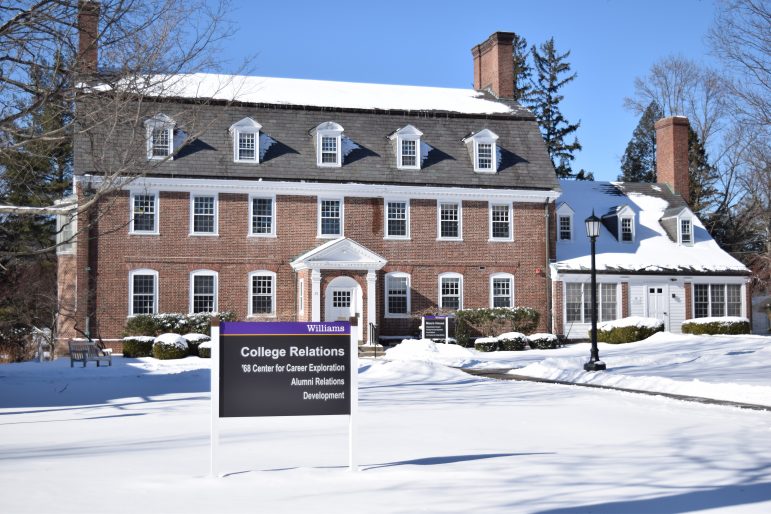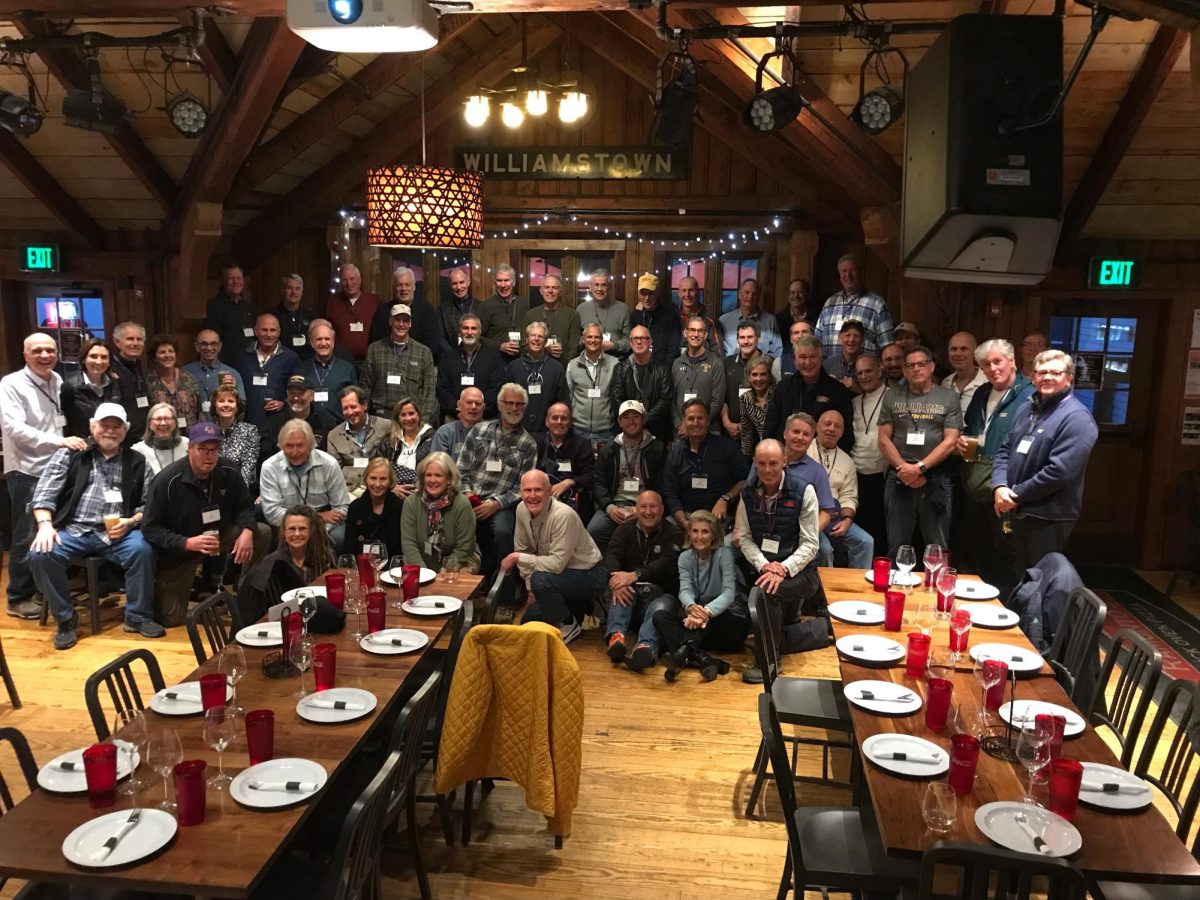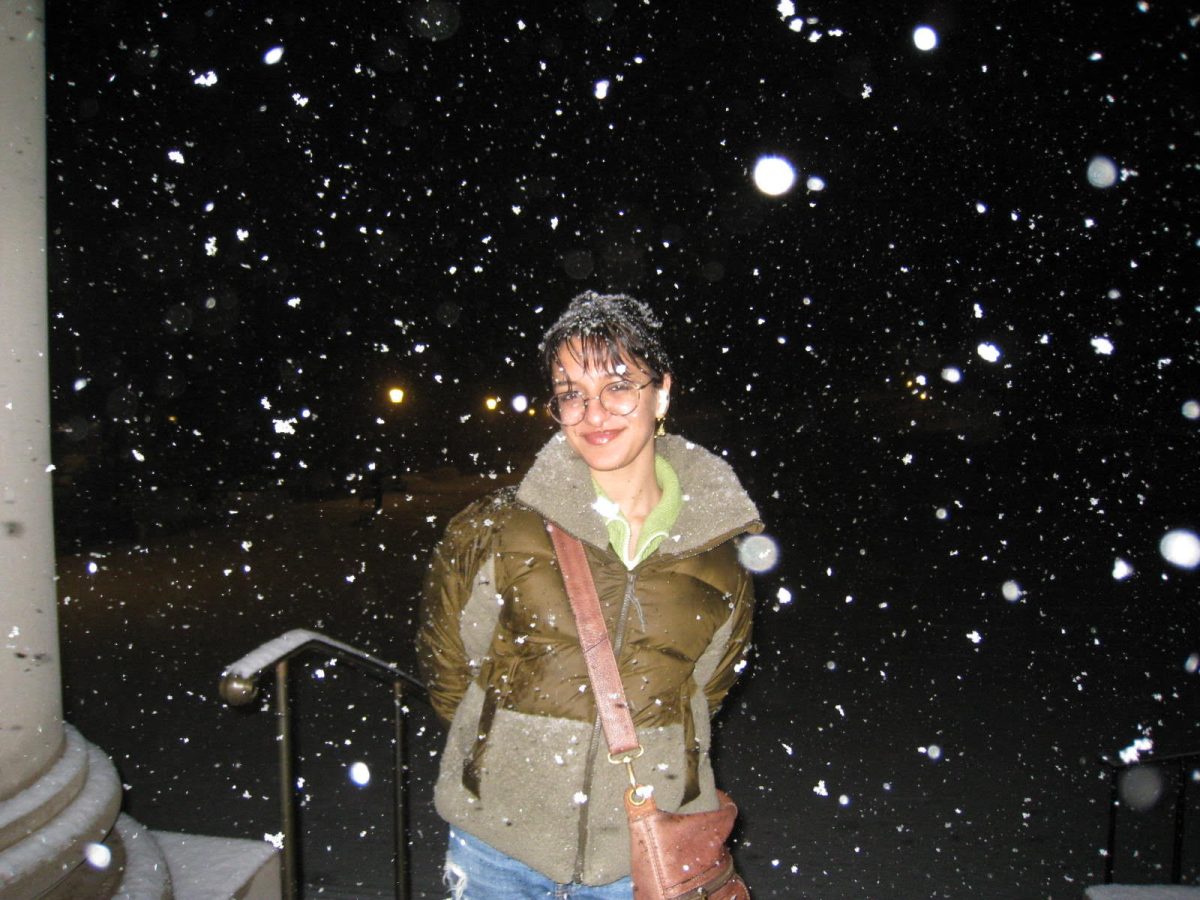
In Winter Study classrooms spread across the nation, from Griffin 6 to the Golden Gate bridge, one buzzword has captured everyone’s attention: startups. The word appears more than 15 times in this year’s Winter Study catalog, which features a wide range of courses aimed to expose students to the thinking behind, and architecture of, the startup world.
“This is a time when students can really go deep in terms of their career planning, thinking about how their interests might relate to something out there in the real world in terms of impact,” said Don Kjelleren, director of the ’68 Center for Career Exploration.
No courses served that mindset more directly than the two designed specifically for students interested in careers in technology or at tech startups, namely “Introduction to Tech Entrepreneurship” and “Field Work in a Bay Area Startup.”
In the former, taught by Elissa Shevinsky ’01, students came up with pitches for tech startups – many of which were aimed at students at the College. Although the campus setting may seem limited as the host for an entire customer base, Shevinsky spoke highly of college students as a target population. “Students are a really crucial demographic,” she said. “You are the ones who make things go viral: you’re online more, you share things more, you type faster.”
Meanwhile, students in “Field Work in a Bay Area Startup” found themselves exploring similar ideas in the context of established, global companies based on the other side of the country. Tonio Palmer, instructor of the course and entrepreneur-in-residence at the Career Center, framed the curriculum around the lean startup methodology, which emphasizes the importance of figuring out early on whether the product is viable. “We visited 15 different companies – Google, Minted.com, Kountable, etc. – and really zeroed in on those aspects of the trade,” he said. “It’s the question of, ‘How do I know if I have a marketable product?’ that we’re trying to study.”
Barbara Fuller, director of science and health professions advising at the Center, coordinated two courses that were even more highly specialized. The first, “Healthcare Internships,” allowed students to shadow professionals in medical fields, while the second, “EMT Training,” offered the chance to complete EMT training while largely remaining on campus. “Winter Study is just the perfect time for an intensive clinical observation experience,” Fuller said. “We don’t get opportunities very often to do things like this.”
Some courses took a broader approach when it came to placing students in a professional setting. “I think of all of the courses offering internship opportunities, mine has the broadest umbrella as far as industry access,” said Dawn Dellea, manager of alumni and parent engagement programs at the Center and coordinator of “Experience the Workplace; an Internship with Williams Alumni/Parents.” Her course arranges internship placements through the Center, pairing students with select alums and parents to give insight into the work environment and company culture in exclusive professions.
“We have internships with NBC Sports, with Deutsche, with startups in San Francisco. We try to counterbalance the classic finance and consulting craze, to give an alternative for that,” she said. “What this does for the student is it gives them the firsthand experience they need to make themselves more marketable moving forward.”
Dellea’s course is one of four offered by the Center that capitalize on the powerful relationship between the College and its alumni network. Kjelleren highlighted the thinking behind drawing such a close alliance between students and alums.
“We truly believe one of the most valuable lifetime memberships you’re going to have as a graduate of Williams College is membership as an Eph forever in the alumni community,” he said. “The alumni are so engaged and so thrilled to work with, mentor, guide students… It’s just an extraordinary partnership. It feels like the entire ecosystem benefits through these types of programs.”
Several courses that were unaffiliated with the Center produced original projects targeting students at the College. Allan Wellenstein’s “Solution Design: from Ideas to Implementation” explored the strategies companies use to avoid the problems that prevent startup projects from succeeding. Two student teams pitched the framework for original technical tools. One project attempted to provide intelligent course recommendations by combining data about courses with data about the student; the other suggested campus events tailored to students’ interests and preferences.
“I appreciated learning about a work culture which prioritizes clarity and understanding,” Will Keating ’19, a student in the class, said.
Meanwhile, a variety of original, student-led projects emerged from “Essential Tools for Startups to Change Good Ideas to Successful Businesses and Organizations,” taught by entrepreneurship consultant Steven Fogel. One such venture, led by Vince McNelis ’21, Carson Kurtz ’22, Jihong Lee ’22 and Mark Bissell ’22, involved an convenience store that would supply basic products from a central location on campus.
Though many are new to the College, these courses offer an exciting look into the inner workings of the startup industry, and demand for them continues to rise. “We’re seeing an increasing interest in entrepreneurship and in technology and those kind of fields,” Dellea said. “You know, in five years, it’s probably going to change. It’s our goal to understand what the trends are, what students are interested in, and to see what we can deliver for them.”








